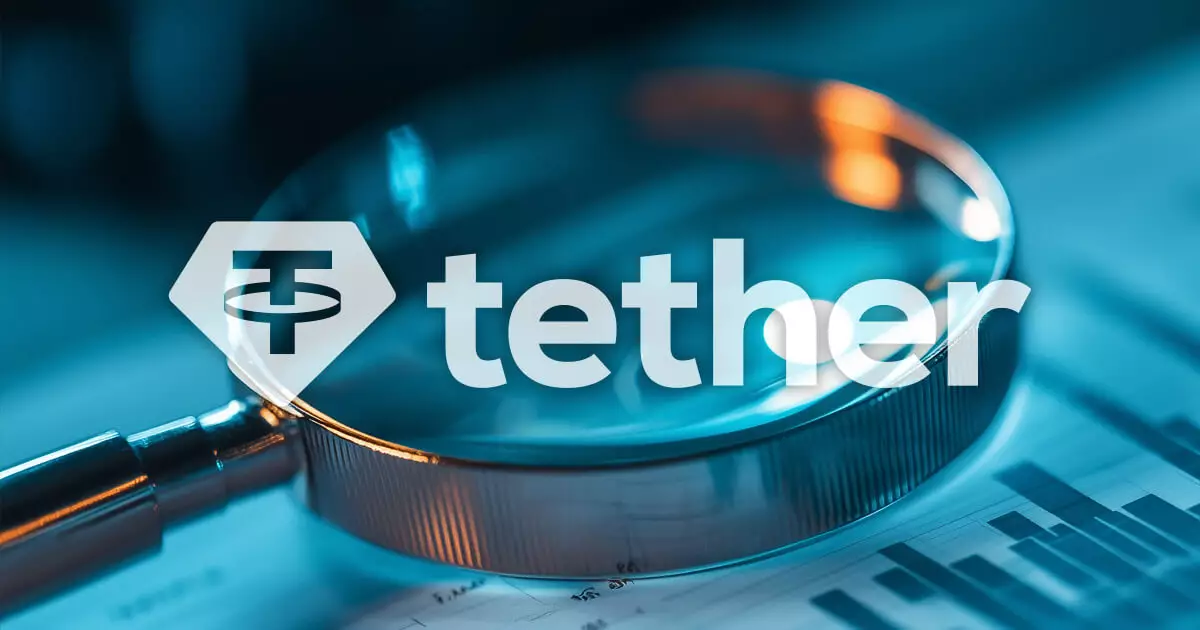Tether’s recent announcement regarding its commitment to conduct a full audit appears to be a desperate attempt to stave off mounting skepticism surrounding its financial practices. Appointing Simon McWilliams as the new Chief Financial Officer is presented as a strategic maneuver to usher in a new era of transparency. However, we must scrutinize this assertion with a critical lens. After years of quarter-by-quarter assurances without a formal audit, skepticism surrounding Tether’s claim that its stablecoin, USDT, is fully backed continues to simmer. The notion that a mere change in leadership will magically resolve these deep-rooted trust issues is overly simplistic at best.
While Tether touts McWilliams as a seasoned finance executive, we have to wonder whether his skills will truly translate into a real commitment to transparency. With over two decades of experience, McWilliams may possess the technical know-how to navigate audits, but experience alone does not secure accountability. Moreover, the very nature of appointing a new CFO implies an organizational acknowledgment of prior failings. If Tether’s executives were committed to transparency all along, why did it take an executive shake-up to make this pledge for an audit? This raises troubling questions about the company’s past practices and future intentions.
The crux of the matter lies in Tether’s reserve holdings. The company has consistently skirted the fundamental issue of providing an independent, comprehensive audit of its assets. Current attestations conducted by the accounting firm BDO, while somewhat reassuring, do not carry the same weight as a full audit would. Investors deserve to understand what exactly backs their USDT tokens, and providing piecemeal information simply isn’t enough. Until a clear picture of its reserves is presented, any claims of transparency remain little more than smoke and mirrors.
Jane Adams, a candidate for the 2024 US House of Representatives, encapsulated the skepticism that many feel toward Tether’s claims of commitment to transparency. Her critique that hiring a new CFO will not alleviate concerns about its reserves is particularly relevant in an environment where political scrutiny is at an all-time high. With regulators increasingly focused on the cryptocurrency market, Tether’s ongoing evasiveness could have dire implications. We’re witnessing a climate where the stability of the financial system is paramount, and a failure to comply could provoke severe repercussions for Tether and those who rely on its stablecoin.
Tether’s CEO, Paolo Ardoino, contends that regulatory firms are hesitant to work with them, thus limiting options for transparency. While there may be a grain of truth to this claim, it effectively sidesteps the broader issue of accountability. The reality is that companies in similar positions must face the music, and simply blaming external factors doesn’t cut it anymore. To regain trust and assert itself in the evolving digital asset space, Tether must demonstrate a genuine commitment to accountability that transcends lip service and involves actual, verifiable action.
Tether’s announcement may sound promising on the surface, but closer examination reveals a troubling lack of foundational commitment to genuine transparency. The path ahead requires more than just a strategic reshuffle—it demands complete honesty and rigorous financial scrutiny that has long been overdue.

